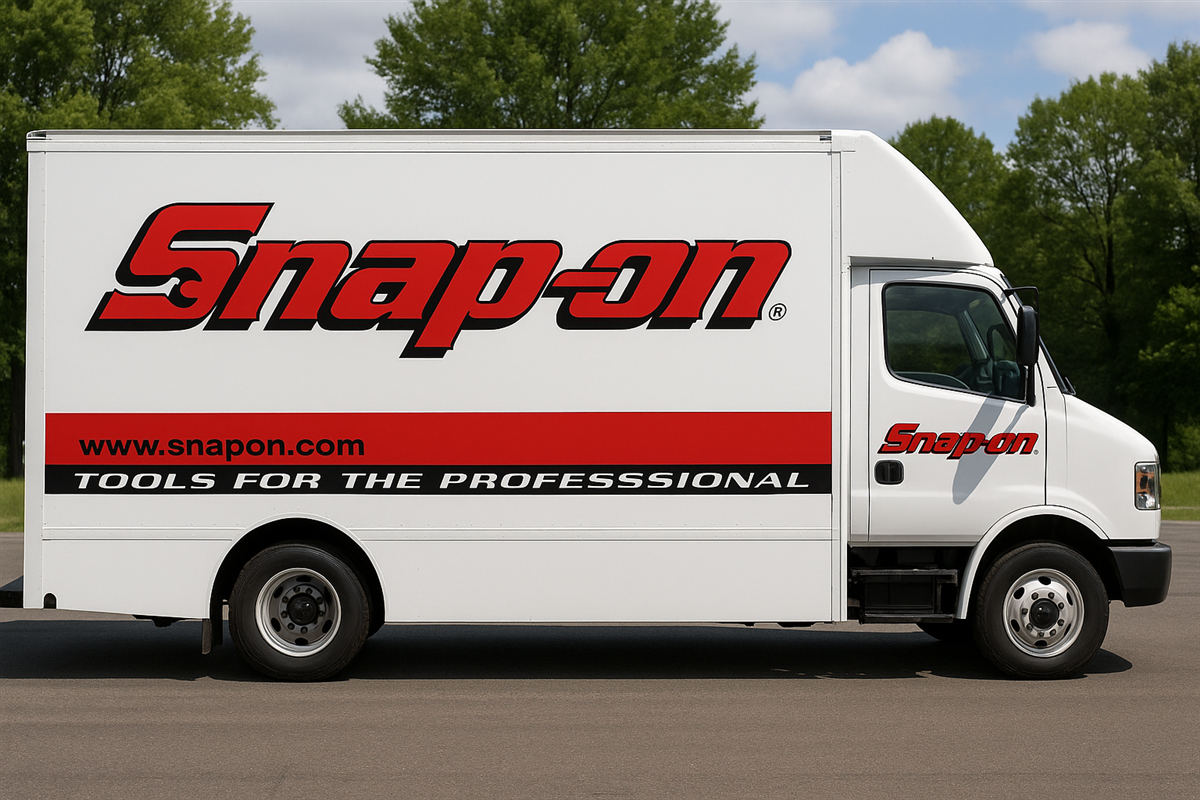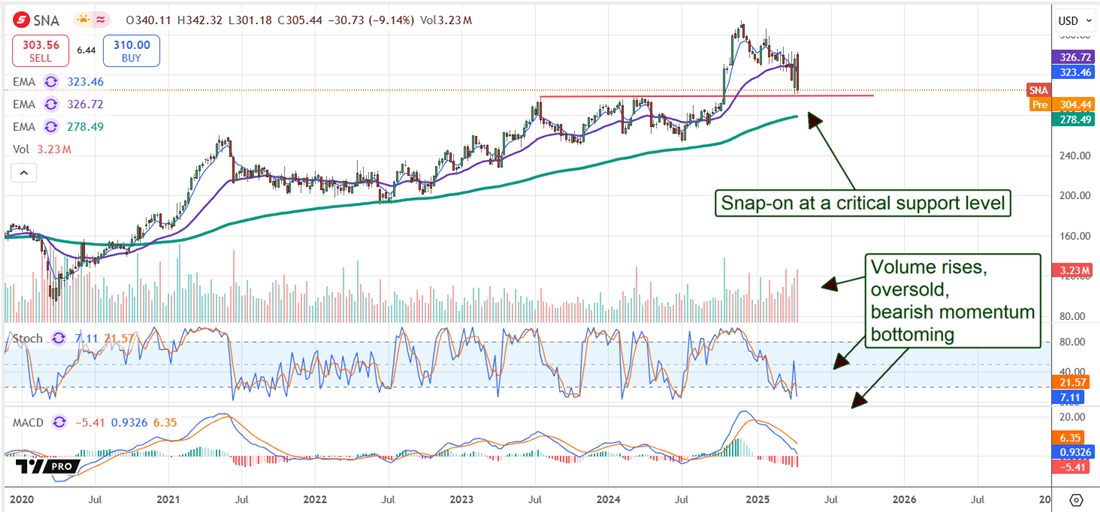
Snap-on (NYSE: SNA) certainly gave its investors a reason to sell when it released its Q1 earnings report in May 2025. However, despite the weaknesses, the report also highlights why this is a must-own stock. Its diversified business model produces robust cash flows sufficient to sustain operations through good times and bad while returning capital to shareholders.
Capital returns are significant, including a higher-than-average dividend yield, and drive value for investors, as seen in stock price action. The stock price tends to trend higher over time, and price pullbacks like the one in Q2 2025 quickly turn into rebounds that produce triple-digit gains.
"We believe that our markets and our operations possess and have demonstrated continuing and considerable resilience against the uncertainties of the current environment. In 2025, Snap-on expects to make ongoing progress along its decisive runways for coherent growth, leveraging capabilities already proven,” said Snap-on in its Q1 release.
Snap-on Diversification and Growth Efforts Help Sustain Operations
Snap-on struggled in Q1, as did many industrial businesses globally. The uncertain economic situation and higher interest rate environment led many end-markets to pull back on spending, leaving Snap-on’s revenue down 3.4% and 500 bps weaker than analysts' forecasts. Weakness was seen in most segments, led by a 6.8% decline in the Snap-on Tools segment and a 2.9% contraction in the Construction and Industrial segment.
Repair Systems grew by 3.7% as businesses lean into maintenance and repair versus new equipment. Financial services, the smallest segment, was also down.
Margin news is also mixed. The company experienced a larger-than-expected contraction in its profit margin, even after adjusting for a one-time event in the prior year. However, gross margin expanded, and earnings power remains robust. The company reported $4.51 in GAAP earnings and positive quarterly cash flow. Guidance is also mixed.
The company indicated high levels of uncertainty while remaining optimistic that its business and end markets will remain resilient, ultimately reaffirming its outlook.

Snap-on’s Ironclad Balance Sheet: Another Reason to Buy
[content-module:DividendStats|NYSE: SNA]Snap-on’s Q1 balance sheet highlights reveal a primary reason to buy and hold this stock. It is an ironclad, fortress-quality balance sheet that can sustain dividends and annual distribution increases indefinitely.
The company produced a cash-flow-positive quarter despite business contraction, CapEx, and capital returns, and did not increase its debt. The highlights include increased cash, receivables, inventory, current, and total assets, only partially offset by increased liabilities.
The liability increase is negligible, long-term debt is flat compared to Q1 2024, and equity is rising. Equity increased by 2.3%, leaving the total liability at less than 0.5x. This means the company’s cash flow is unimpeded, and ample reserves are in place in the event that the global economy enters a deep or prolonged recession.
Regarding the capital return, Snap-on pays dividends and buys back shares. The repurchases aren’t robust but offset dilutive actions and reduced the count incrementally, down about 0.75% year-over-year at the end of Q1. The dividend is more substantial, yielding about 2.8% in late April with shares near $305. The payout is safe due to the balance sheet's health and payout ratio, which is better than average at 30% of the 2025 outlook.
Analysts Trends Support Snap-on Price Action
Analysts could change their tune in late Q2 and the back half of the year, but until then, the trends are bullish and support the uptrend. The trends include increasing coverage, firming sentiment improving from Hold to Moderate Buy, and a rising consensus target. The consensus forecasts a 15% upside for this stock by year’s end, and the high-end range adds 15% to it. Price action in April is sketchy with the market pulling back from its recent highs.
However, the market for Snap-on stock remains in an uptrend, and critical support targets limit the downside. Those include the uptrend line, highs set in 2024, and the long-term 30-month EMA.
Where Should You Invest $1,000 Right Now?
Before you make your next trade, you'll want to hear this.
MarketBeat keeps track of Wall Street's top-rated and best performing research analysts and the stocks they recommend to their clients on a daily basis.
Our team has identified the five stocks that top analysts are quietly whispering to their clients to buy now before the broader market catches on... and none of the big name stocks were on the list.
They believe these five stocks are the five best companies for investors to buy now...

